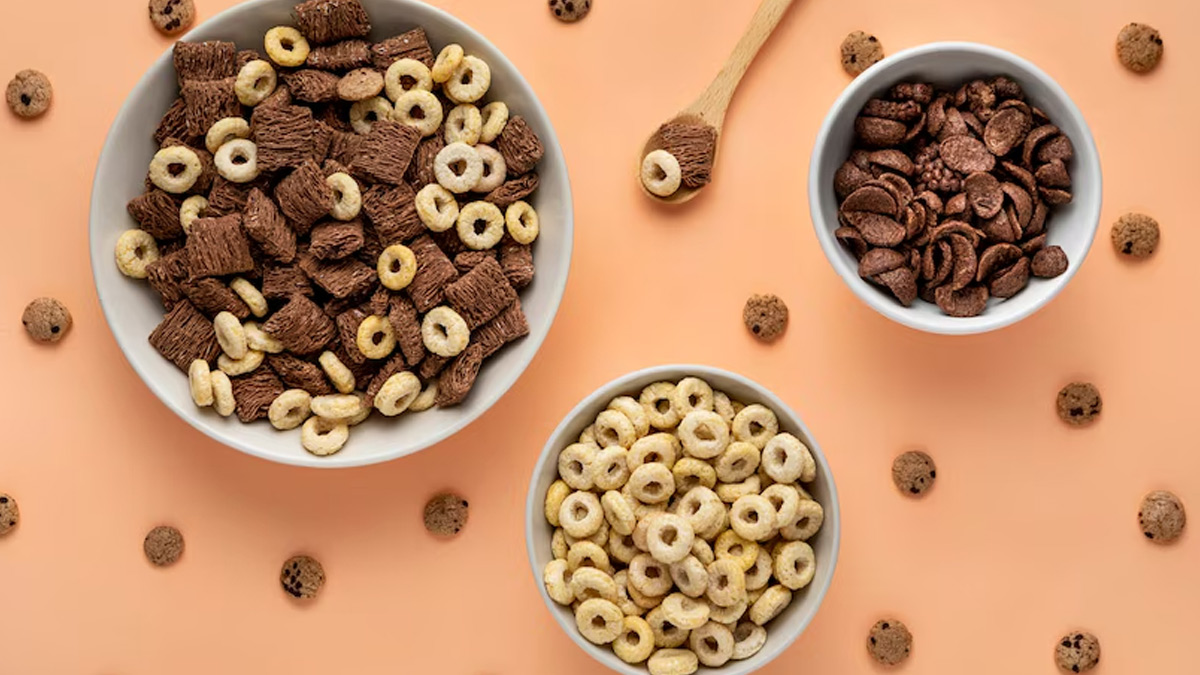
Breakfast is often dubbed the "most important meal of the day," setting the tone for your energy levels and focus. However, not all breakfast choices are beneficial. Some foods, while commonly consumed in the morning, can lead to sluggishness, digestive problems, or even long-term health concerns. Here are five breakfast foods to avoid, backed by research and expert opinions.
Table of Content:-
1. Sugary Cereals

Many cereals marketed as healthy options are loaded with sugar and refined carbohydrates. While they may provide an initial energy spike, this is often followed by a crash, leaving you feeling tired and irritable.
A study published in Public Health Nutrition found that high sugar intake in the morning leads to decreased cognitive performance later in the day. Furthermore, consistent consumption of sugary cereals can increase the risk of obesity and type 2 diabetes. Opt for whole-grain, unsweetened cereals with added fruits for natural sweetness instead.
2. Flavoured Yoghurts

Yoghurts are often considered a healthy breakfast staple, but flavoured varieties can be deceptively unhealthy. These yoghurts are often packed with added sugars and artificial flavourings, which can contribute to weight gain and increased blood sugar levels.
A report in the British Journal of Nutrition revealed that many flavoured yoghurts contain as much sugar as a dessert. While plain Greek yoghurt is rich in protein and probiotics, flavoured versions can negate the health benefits. Stick to unsweetened yoghurt and add fresh fruits or a drizzle of honey for flavour.
3. White Bread Toast with Spreads

White bread, though convenient, is made from refined flour, which lacks essential nutrients and fibre. Spreading sugary jams, margarine, or chocolate spreads only exacerbates the issue. This combination can lead to rapid spikes in blood sugar levels, leaving you hungry again shortly after eating.
A 2019 study in The Lancet highlighted the importance of whole grains in reducing the risk of heart disease and maintaining healthy weight levels. Instead of white bread, opt for whole-grain or multi-seed bread paired with avocado or nut butter for a nutritious start.
4. Processed Meats

Bacon, sausages, and ham are popular breakfast choices, but they are high in saturated fats, sodium, and preservatives. Regular consumption of processed meats is linked to an increased risk of heart disease, hypertension, and certain cancers.
The World Health Organization (WHO) classifies processed meats as carcinogenic to humans. Research published in The European Journal of Epidemiology found that high processed meat consumption significantly increases the risk of colorectal cancer. For a protein-rich breakfast, consider alternatives like eggs, legumes, or smoked salmon.
5. Fruit Juices

While fruit juices may seem like a healthy choice, most commercially available juices are high in added sugars and lack the fibre found in whole fruits. Consuming juice can lead to blood sugar spikes and an increased risk of type 2 diabetes when consumed regularly.
A study in Diabetes Care found that individuals who regularly consumed fruit juices had a higher risk of developing diabetes compared to those who ate whole fruits. Drinking water, herbal teas, or smoothies made with whole fruits and vegetables is a much healthier choice.
The Impact of Poor Breakfast Choices
The foods you choose for breakfast significantly influence your metabolic rate, energy levels, and overall health. According to Dr. Jane Roberts, a registered dietitian in London, “Starting your day with high-sugar or low-fibre foods can disrupt your body’s natural rhythm and lead to unhealthy cravings later on.”
Skipping processed, sugary, or nutrient-poor breakfast items can set you on the right path towards improved concentration, better mood, and long-term wellness.
Conclusion
Avoiding certain breakfast foods can make a significant difference to your day and overall health. By steering clear of sugary cereals, flavoured yoghurts, white bread with unhealthy spreads, processed meats, and fruit juices, you can maintain stable energy levels and reduce your risk of chronic diseases.
Instead, aim for balanced breakfasts that include whole grains, lean proteins, healthy fats, and fresh produce. Your body and mind will thank you for making smarter choices in the morning.
Also watch this video
How we keep this article up to date:
We work with experts and keep a close eye on the latest in health and wellness. Whenever there is a new research or helpful information, we update our articles with accurate and useful advice.
Current Version